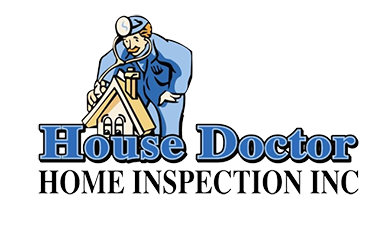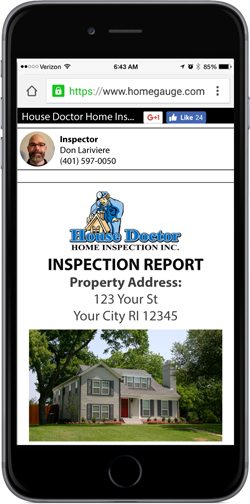Frequently Asked Questions
Are home inspections really necessary?
Home inspections are essential for ensuring a property's safety and integrity. They uncover potential issues that could lead to costly repairs and provide peace of mind for buyers and sellers alike.
Can a home inspector inspect their own home?
Home inspectors can inspect their own homes, but it is recommended to hire a qualified professional for an objective assessment. Personal biases may affect their ability to thoroughly evaluate potential issues.
Are house inspections worth it?
House inspections are worth it as they provide valuable insights into a home's condition, helping buyers make informed decisions, uncover potential issues, and ensure safety, ultimately saving money and avoiding costly surprises in the future.
Are home inspections required by law?
Home inspections are not typically required by law; however, they are highly recommended, especially for buyers to ensure the safety and condition of a property before purchase.
Can I be home during a home inspection?
You can be home during a home inspection. In fact, many clients prefer to stay, as it allows them to ask questions and gain insights about the property from the inspector.
Are house inspections required?
House inspections are not legally required, but they are highly recommended to ensure the safety and integrity of a property. Many buyers opt for inspections to uncover potential issues before finalizing a purchase.
How often should home inspections be conducted?
Home inspections should be conducted every 1-2 years for homeowners, especially if significant changes or renovations occur. Regular inspections help maintain safety and ensure the property's integrity over time.
What do home inspectors look for specifically?
Home inspectors specifically look for issues that may affect the safety and structural integrity of a home. This includes evaluating the roof, plumbing, electrical systems, HVAC, insulation, and more to ensure everything is functioning properly and to identify potential problems.
What is the average cost of a home inspection?
The average cost of a home inspection typically ranges from $300 to $500, depending on the size and age of the home, as well as the specific services included in the inspection.
How long does a home inspection take?
A home inspection typically takes about 2 to 4 hours, depending on the size and condition of the property. This timeframe allows for a thorough examination to ensure the safety and integrity of your home.
What qualifications should home inspectors have?
The qualifications that home inspectors should have include relevant licenses, certifications from recognized organizations, comprehensive training in home inspection practices, and a solid understanding of building codes, safety standards, and structural integrity.
Can home inspections prevent future problems?
Home inspections can indeed prevent future problems. By identifying potential issues early, homeowners can address repairs promptly, ensuring the safety and integrity of their property while saving on costly repairs down the line.
What happens if issues are discovered during inspections?
If issues are discovered during inspections, they will be documented in a detailed report, allowing you to address the problems before finalizing your home purchase. This ensures you are fully informed and helps maintain the integrity and safety of the property.
Are inspection reports easy to understand?
Inspection reports are designed to be straightforward and easy to understand. Our thorough yet clear explanations ensure you grasp the findings, making the inspection results accessible and actionable for your peace of mind.
How should I prepare for a home inspection?
Preparing for a home inspection involves ensuring your home is accessible and tidy. Clear areas around the attic, basement, and mechanical systems, and provide access to all rooms, which will help facilitate a thorough evaluation.
What types of homes need inspections?
The types of homes that need inspections include newly constructed homes, older properties, homes on the market for sale, and those undergoing major renovations. Inspections ensure that all homes meet safety and structural integrity standards.
Are pre-listing inspections beneficial for sellers?
Pre-listing inspections are beneficial for sellers as they help identify potential issues, allowing for repairs that can enhance the home's value and attract buyers, leading to a smoother transaction process and potentially quicker sales.
Can home inspectors offer repair recommendations?
Home inspectors can provide general repair recommendations based on their findings, but they typically do not perform repairs themselves. Their primary role is to identify issues and advise on the necessary steps to resolve them.
What is the difference between appraisals and inspections?
The difference between appraisals and inspections lies in their purpose. Appraisals estimate a home's market value, while inspections assess the property's condition and identify potential issues requiring attention.
How do I choose a qualified home inspector?
Choosing a qualified home inspector involves verifying their credentials, experience, and customer reviews. Look for certifications, insurance, and a good reputation in your area to ensure thorough and reliable inspections.
Are there specialized inspectors for older homes?
Specialized inspectors for older homes are available. These inspectors have expertise in identifying unique issues common in older properties, such as outdated electrical systems, structural concerns, and potential compliance with modern codes.
Is it safe to live in during inspection?
It is generally safe to live in your home during an inspection. However, some areas may be temporarily inaccessible, and it’s advisable to coordinate with the inspector to minimize any disruptions.
Do home inspectors provide warranties or guarantees?
Home inspectors typically do not provide warranties or guarantees for their inspections. However, some firms may offer limited warranties through third-party providers for specific issues identified during the inspection. Always inquire about this option before booking.
What tools are used during home inspections?
The tools used during home inspections include moisture meters, infrared cameras, gas leak detectors, and electrical testers. These instruments help inspectors evaluate the home's condition, identify potential issues, and ensure safety and integrity for home buyers and owners.
How can I dispute findings from an inspection?
Disputing findings from an inspection involves reviewing the report carefully, gathering supporting evidence, and communicating your concerns directly to the inspector or the inspection company. It's essential to document your points clearly for effective resolution.
Can a home inspection save money in the long run?
A home inspection can save money in the long run by identifying potential issues early, allowing homeowners to address repairs before they escalate into costly problems. This proactive approach ultimately protects your investment and reduces unexpected expenses.
What are common issues found in home inspections?
Common issues found in home inspections often include roof leaks, electrical hazards, plumbing defects, HVAC system inefficiencies, and structural concerns. Identifying these problems helps ensure the safety and integrity of the home.
Are home inspections mandatory for buyers?
Home inspections are not legally mandatory for buyers, but they are highly recommended to ensure the condition and safety of the property before purchase.
Can you negotiate repairs based on inspection findings?
You can negotiate repairs based on inspection findings. Typically, buyers may request repairs or pricing adjustments after a home inspection reveals issues, providing an opportunity to ensure the property's condition meets expectations before finalizing the sale.
What is included in a standard home inspection?
A standard home inspection includes a thorough evaluation of the home's structure, roofing, plumbing, electrical systems, HVAC, and major appliances, ensuring that everything meets safety and functionality standards.




